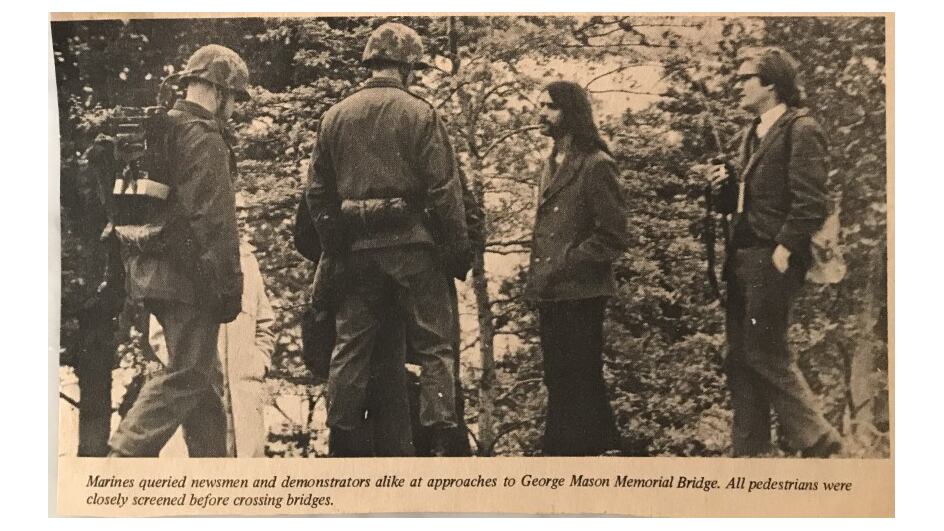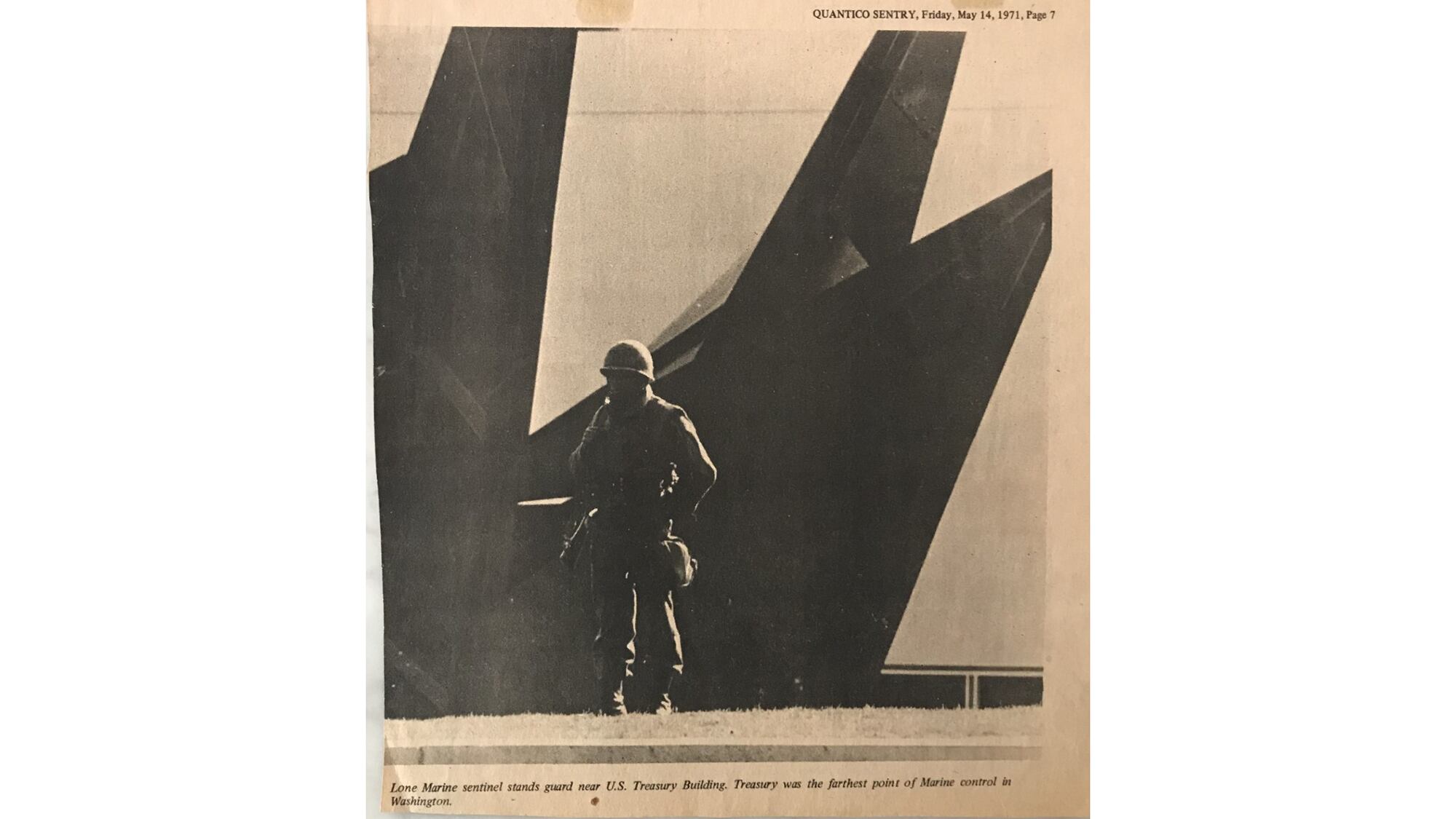During the first six months of 1971, I was consumed with making it through Marine Corps officer training at The Basic School in Quantico, Virginia. I was not particularly aware of Vietnam anti-war protests going on around the country and close by in Washington, D.C. When I did think of the protests, I resented the demonstrators since I was a firm believer in law and order. Also, some of the demonstrations were aimed at our military personnel who were serving, or had served, in Vietnam. That sentiment was particularly hurtful to me, as I had lost a childhood friend and fellow Marine, Lee Herron, who had died heroically in Vietnam in 1969.
Why should any of our nation's volunteers or draftees be looked down upon for having gone where our country's leadership had sent them? It was a dark period in our country, much as today is. Why should any ethnicity or group of people in our nation be looked down upon today?
Especially since I had come from Houston, the spring of 1971 seemed to be an extremely cold one that lasted until early June. Going from doing indoor work in Houston to doing pushups in the snow at Quantico seemed like a surreal experience.
As I arrived at the school in Quantico, Virginia, one morning in early May, my class of young officers was told that the field exercises for the next day or so had been canceled. A number of the instructors had been sent to Washington, D.C., to guard a number of government installations in the city, and to keep the major bridges open. The troops also took with them various items of equipment, including a number of the Vietnam-era radios, the so-called PRC-25 radios.
Since those PRC-25 radios were critical to our TBS-planned field exercises, the loss of them to the troops guarding D.C. meant that our missions were “scrubbed” until a later date. But most of my class members and I were pleased at the turn of events, as we got to spend a couple of extremely cold days indoors.

I did not keep many articles and photos from the local Quantico Sentry newspaper during that spring, but I did keep several photos and the main article that showed and described the anti-war protests going on in Washington, D.C. The photo that stood out to me more than any other one depicts some Marines screening a long-haired young man and a newsman, as they approached the George Mason Memorial Bridge. I found the contrast quite striking.
On the one hand, there are the Marines in full uniform and obviously with short hair. Approaching them is an assumed civilian demonstrator with long hair down past his shoulders, and a newsman wearing a suit and neatly dressed. The caption accompanying the photograph reads as follows: “Marines queried newsmen and demonstrators alike at approaches to George Mason Memorial Bridge. All pedestrians were closely screened before crossing bridges.”

Another searing photo depicts a Marine Chinook helicopter with Marines onboard from Camp Lejeune, North Carolina, about to land on the grounds next to the Washington Monument. According to the photo’s caption, the purpose was to “head off demonstrators moving toward the Treasury Building.” I have always wondered whether there was a concern of demonstrators attempting to loot the Treasury Building! But if that were the case, the Treasury Building was guarded only by a sole Marine, at least in the published photo.
The caption under the photograph of the solitary Marine guarding the Treasury Building indicates that “Treasury was the farthest point of Marine control in Washington.” Wow! How difficult is it to imagine a portion of our nation’s capital being under “Marine control”? Are the protests currently in progress and being planned — are they going to result in Washington, D.C., and perhaps other cities, being under some degree of military control?
Have we not progressed much in 49 years in learning to peacefully resolve our nation’s issues?
David Nelson served in the Marine Corps for three years before separating as a captain in 1973. He lives in Houston.





